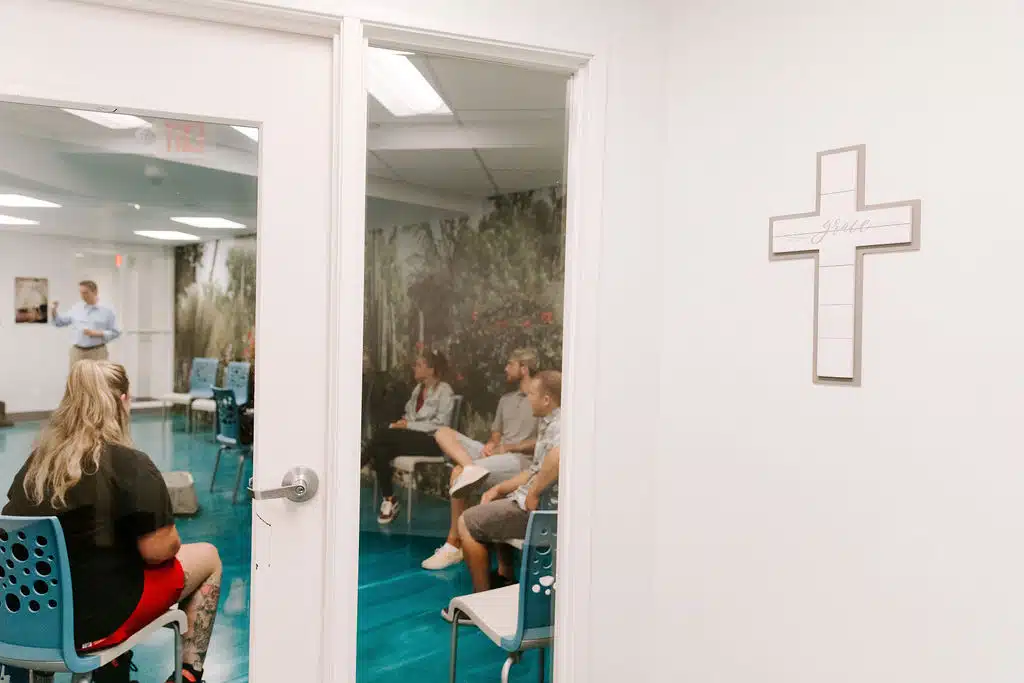
Why Christian Rehab California Matters for Your Recovery Journey
Christian rehab California programs offer a unique path to recovery by combining evidence-based addiction treatment with spiritual guidance. If you or a loved one is searching for faith-centered care, these programs integrate prayer, Bible study, and Christian counseling with proven therapies like CBT and DBT. They are open to anyone seeking to incorporate faith into their recovery, regardless of denomination.
Addiction often leaves a spiritual void that traditional rehab can overlook. California is home to leading Christian treatment centers that recognize addiction as a spiritual battle, not just a physical or psychological one. They address the whole person—mind, body, and spirit—offering everything from medical detox and residential care to outpatient programs and dual diagnosis treatment. While the average cost of treatment is around $56,654, most insurance plans provide coverage under the Affordable Care Act. Research shows that faith-based programs can increase resilience and encourage lasting sobriety.
But with so many options, how do you find the right one? This guide offers five practical tips for finding a Christian rehab in California that meets your specific needs. We’ll cover what Christian treatment means, how to verify clinical excellence, the different levels of care, and how to steer insurance.
At Addiction Helpline America, we’ve spent years connecting individuals and families with Christian rehab California programs that transform lives. Our mission is to provide the compassionate, confidential guidance you need to take the first step toward healing.
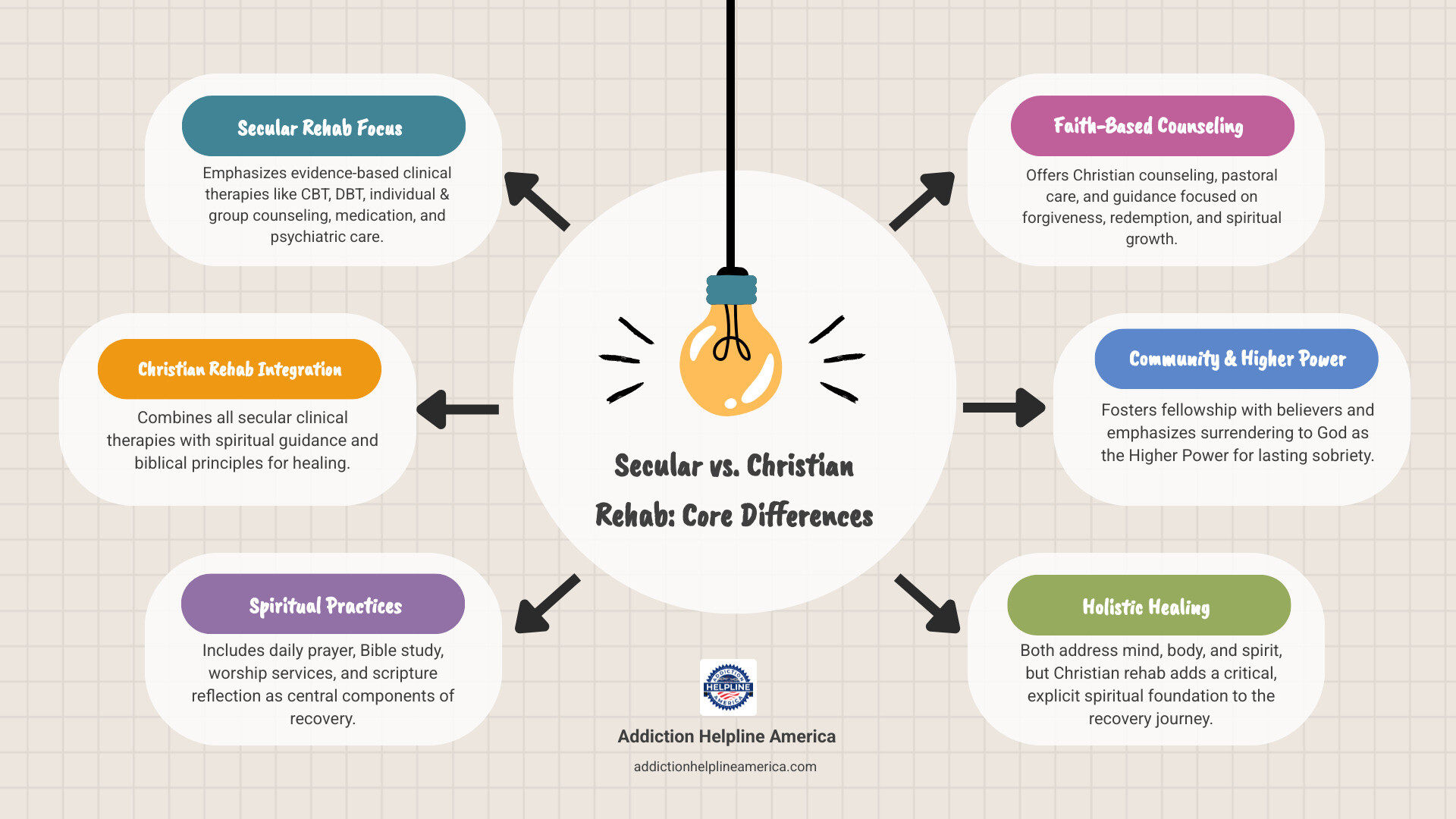
Simple Christian rehab California word guide:
Tip 1: Understand the Foundations of Christian Addiction Treatment
For many, addiction stems from a deep spiritual emptiness that traditional therapy alone can’t fill. Christian rehab California programs address this by weaving proven clinical therapies with spiritual guidance rooted in biblical principles. They treat the whole person—mind, body, and spirit—recognizing that true healing involves your relationship with God.
Importantly, you don’t need to be a lifelong Christian to benefit from these programs. They welcome people from all backgrounds who are willing to explore faith as part of their healing. Research supports this approach, showing that incorporating faith into treatment increases resilience, helps individuals find meaning, and supports lasting sobriety. Faith is a powerful complement to clinical care, not a replacement for it.
Call Now – Your Journey to Recovery Begins Today!

Take the first step towards a healthier life! Call now to connect with our compassionate team and start your recovery journey today. Your path to healing awaits!
Our recovery specialists are available 24/7 to provide support, and all calls are confidential and free. Reach out anytime – we’re here to help!
What to Expect in a Christian Rehab in California
A Christian rehab California facility blends the structure of traditional rehab with opportunities to strengthen your faith. Your day is infused with spiritual practices designed to foster a connection with God.
Mornings may begin with prayer and meditation, setting an intentional tone. Bible study sessions offer guidance and hope from scripture, framed as conversations about how ancient wisdom applies to modern struggles. Worship services provide communal praise and spiritual nourishment, creating a bond with others who understand your journey.
Christian counseling is a cornerstone, where licensed professionals integrate biblical principles into evidence-based therapies. They help you explore the root causes of your substance use and what forgiveness and redemption mean for you. You may also have access to pastoral guidance from spiritual leaders for mentorship beyond clinical therapy.
Finally, fellowship opportunities help you build a supportive Christian community that can last a lifetime. This holistic approach doesn’t just aim for sobriety—it helps you find who God created you to be.
The Role of the 12-Steps in Christian Recovery
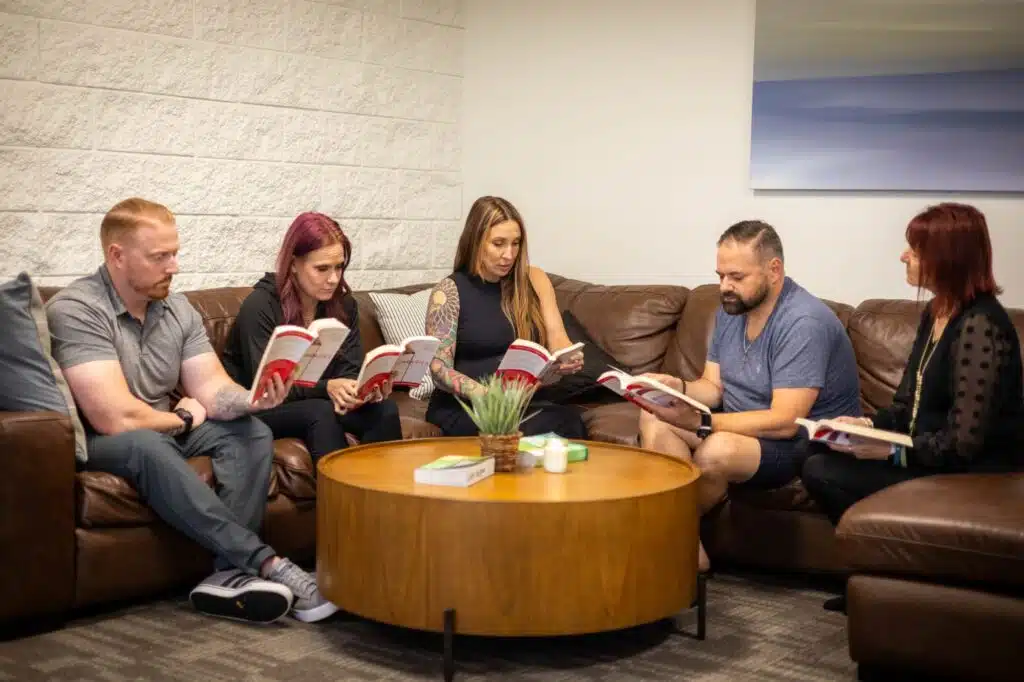
The 12-Steps, developed by Alcoholics Anonymous, are a cornerstone of addiction recovery. Their spiritual roots align beautifully with Christian faith, as the original AA program evolved from a Christian organization. While AA refers to a general “Higher Power,” the core principles echo Christian values: honesty, humility, surrender, confession, and service.
In a Christian rehab California program, these steps are explicitly framed within Christian theology. Instead of a vague “Higher Power,” you’re invited to surrender specifically to God through Jesus Christ. This makes the spiritual surrender of the 12-Steps more concrete and personal.
For example, Step Three (turning your will and life over to God) becomes an opportunity to deepen your relationship with Jesus. Steps Eight and Nine (making amends) become an exercise in living out biblical teachings on forgiveness and reconciliation. Step Eleven (seeking conscious contact with God through prayer and meditation) aligns with timeless Christian spiritual disciplines.
This integrated approach provides a proven roadmap for recovery, with Christian faith supplying the power and purpose to walk that road. It’s about experiencing genuine spiritual change, not just getting sober.
Tip 2: Verify Clinical Excellence in California Christian Rehab
Faith and science are partners in recovery. While a spiritual foundation is vital, any reputable Christian rehab California program must also provide exceptional clinical care. Addiction is a complex disease affecting the brain, body, and emotional well-being. The best Christian rehabs understand this and integrate faith with science to heal the whole person.
Essential Evidence-Based Therapies to Look For
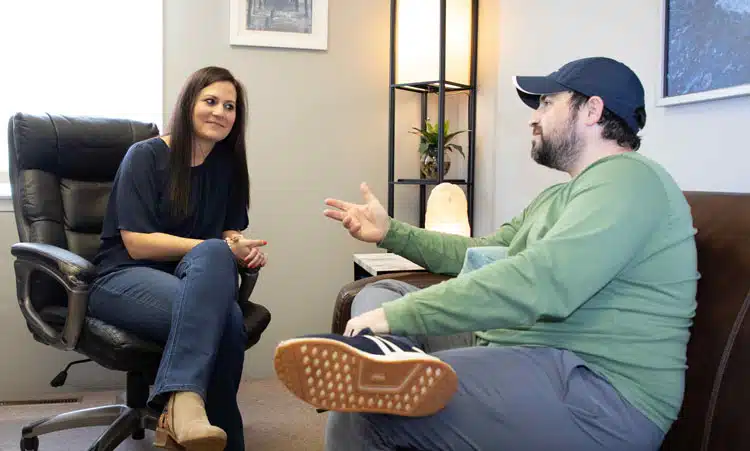
When researching programs, ask about their clinical approach. A quality facility will offer a range of evidence-based therapies that are essential for building a life free from addiction.
- Cognitive Behavioral Therapy (CBT) helps you identify and change the negative thought patterns that lead to substance use, replacing them with healthy coping skills.
- Dialectical Behavior Therapy (DBT) is especially helpful for those with intense emotions, teaching skills for distress tolerance, emotional regulation, and healthier relationships.
- Motivational Interviewing is a non-judgmental approach that helps you find your own internal motivation for recovery, strengthening your commitment to change.
- Group therapy dissolves the isolation of addiction by creating a sense of belonging among peers who understand your struggles.
- Individual counseling provides a safe, one-on-one space to work through personal issues, trauma, and the unique circumstances of your addiction.
- Dual diagnosis treatment is critical for addressing co-occurring mental health conditions like depression, anxiety, or PTSD alongside addiction. Treating both simultaneously is essential for long-term success.
According to the National Institute on Drug Abuse’s Principles of drug addiction treatment: a research-based guide (third edition), these therapies are foundational to effective treatment. Combined with spiritual guidance, they offer the most comprehensive care available.
How to Check Accreditation and Licensing
Not all treatment centers are created equal. Verifying credentials protects you from facilities more interested in your insurance than your recovery.
Start by looking for accreditation from The Joint Commission or CARF (Commission on Accreditation of Rehabilitation Facilities). These independent organizations set high standards for healthcare quality, safety, and patient outcomes. Accreditation is a strong indicator of a program’s commitment to excellence.
Additionally, every legitimate facility in California must be licensed by the California Department of Health Care Services (DHCS). This state license ensures compliance with regulations for safety, staffing, and ethical practices.
You can verify a facility’s license through the state’s official dataset for SUD recovery and treatment facilities, which you can find by clicking here. Prioritizing facilities with both national accreditation and state licensing ensures you are choosing a center that has proven its commitment to quality care.
Tip 3: Explore the Different Levels of Care Offered
Addiction treatment is not one-size-fits-all. A quality Christian rehab California program offers a continuum of care with different levels of intensity to meet you where you are in your recovery journey. This flexibility allows you to transition between levels of care as your needs change, all within the same supportive, faith-based environment.
From Detox to Outpatient: A Breakdown of Programs

- Medical detox is often the first step for those with physical dependence on substances like alcohol, opioids, or benzodiazepines. In a safe, supervised setting, medical professionals help manage withdrawal symptoms to keep you as comfortable as possible.
- Inpatient or residential rehab provides the most intensive care. You live onsite, receiving 24/7 support and a full schedule of therapy, Christian counseling, and group activities. This immersive environment removes you from triggers and allows you to focus completely on healing.
- Partial hospitalization programs (PHPs) are a step down, offering structured treatment for several hours a day, most days of the week. You participate in therapy and faith-based activities before returning home or to a sober living environment in the evenings.
- Intensive outpatient programs (IOPs) provide significant therapeutic support (typically 9-20 hours per week) while allowing you to maintain work or family responsibilities. Sessions are often held in the evenings.
- Standard outpatient programs offer the most flexibility, with treatment sessions once or twice a week. This level is ideal for those who have completed more intensive care or have a strong support system at home.
A comprehensive Christian rehab California program designs these levels to work together, ensuring you have the right amount of support at every stage of your recovery.
Call Now – Your Journey to Recovery Begins Today!

Take the first step towards a healthier life! Call now to connect with our compassionate team and start your recovery journey today. Your path to healing awaits!
Our recovery specialists are available 24/7 to provide support, and all calls are confidential and free. Reach out anytime – we’re here to help!
What Substance Use Disorders Are Treated?
Christian rehab centers in California are equipped to treat a full range of substance use disorders, from alcohol addiction to dependencies on opioids, heroin, prescription drugs, methamphetamine, and cocaine. They understand that addiction takes many forms and provide specialized care custom to your specific needs.
Crucially, the best programs offer dual diagnosis treatment for co-occurring mental health disorders like depression, anxiety, PTSD, and bipolar disorder. These conditions often fuel addiction, and treating them simultaneously is essential for lasting recovery. By addressing both substance use and mental health, these programs help you heal the whole person and find freedom from the underlying pain that drove you to use in the first place.
Tip 4: Navigating the Cost of Treatment and Insurance
Financial concerns can feel like a major barrier to getting help. While the average cost for substance abuse treatment in California is around $56,654, this figure varies widely based on the level of care, program duration, and amenities. Inpatient programs cost more than outpatient options due to 24/7 supervision and housing, but research shows that longer stays significantly improve outcomes.
You’re not just paying for a bed; you’re investing in professional expertise, life-changing therapy, and spiritual guidance. The goal is to reclaim a life, and insurance can make this investment far more manageable.
Here’s a snapshot of how insurance can reduce the daily cost of a 30-day program in California:
| Treatment Type (30-day stay) | Cost without insurance | Cost with 60% insurance | Cost with 80% insurance |
|---|---|---|---|
| Inpatient (daily) | $629.49 | $251.80 | $125.90 |
| Outpatient (daily) | $56.76 | $22.70 | $11.35 |
These numbers show that insurance makes a tremendous difference in affordability.
Does Insurance Cover Christian Rehab in California?
Yes, your health insurance will likely cover a significant portion of addiction treatment at a Christian rehab California facility. The Affordable Care Act (ACA) mandates that addiction and mental health treatment are essential health benefits, meaning insurers must cover them just as they would other medical procedures.
This right to mental health parity ensures that whether you have a PPO, HMO, or private plan, you have coverage that can help. Your out-of-pocket costs will depend on your specific plan and whether the treatment center is in-network or out-of-network.
The most important step is to verify your insurance benefits. You can call your provider directly, but it’s often easier to let the admissions team at a rehab center handle it for you. They are experts at navigating insurance and can explain your deductibles, co-pays, and out-of-pocket maximums in simple terms.
Many facilities also offer payment plans, financing options, or sliding scale fees to help manage any remaining costs. Some non-profit Christian organizations may offer free or low-cost programs, though these often have waiting lists.
At Addiction Helpline America, we provide free, confidential guidance to help you understand your options and find affordable, quality care. Don’t let financial worries stop you from seeking help.
Tip 5: How to Choose the Right Center for Your Family
Choosing the right Christian rehab California program is a deeply personal decision. It’s about finding a place where faith and clinical excellence come together to create a supportive environment for healing. Involving your family in this process is crucial, as their support can make a significant difference in long-term success.
As you evaluate options, create a checklist of your priorities. Is a specific therapy essential? What about the intensity of spiritual guidance or the location? Having clear priorities will help you make a confident choice.
Finding the Best Christian Rehab in California for Your Family
When you contact potential centers, be prepared with questions. The admissions staff should be transparent and ready to help you understand their program.
Key questions to ask:
- How do you integrate faith and clinical therapy? Ask for specific examples of how scripture is used in counseling or what a typical day’s spiritual activities include.
- What are your staff’s credentials? Ensure the team includes licensed clinical professionals and that those providing spiritual guidance have appropriate training.
- What does a typical day look like? Understanding the daily schedule will give you a feel for the program’s structure and balance.
- How is the family involved in treatment? Look for programs with family therapy, educational resources, and clear visitation policies. The What is substance abuse treatment? A booklet for families explains why this is so important.
- What aftercare and relapse prevention support do you offer? Recovery is a lifelong journey. Ask about alumni groups, sober living connections, and help finding local church support.
Considering Gender-Specific Programs
Gender-specific programs, which serve only men or only women, offer unique advantages that may be worth considering.
- Fewer distractions: Removing romantic possibilities allows individuals to focus entirely on their recovery.
- Focused discussions: These programs create a safe space to address gender-specific issues, such as trauma or societal pressures, more openly.
- Stronger peer relationships: Many people feel more comfortable opening up in a same-gender environment, leading to deeper connections and a stronger support network.
- Increased vulnerability: The safe environment encourages honest sharing about sensitive topics, which is crucial for deep healing.
If you think a gender-specific program might be a good fit, Addiction Helpline America can help you identify options that align with your needs. We’re here to walk alongside you as you make this important decision.
Call Now – Your Journey to Recovery Begins Today!

Take the first step towards a healthier life! Call now to connect with our compassionate team and start your recovery journey today. Your path to healing awaits!
Our recovery specialists are available 24/7 to provide support, and all calls are confidential and free. Reach out anytime – we’re here to help!
Conclusion
The path to recovery is never walked alone. For those seeking to anchor their healing in faith, a Christian rehab California program offers a unique environment where spiritual needs are honored alongside clinical treatment. We’ve covered five key steps: understanding the foundations of Christian treatment, verifying clinical excellence, exploring levels of care, navigating costs, and choosing the right center for your family.
Recovery is about more than just stopping substance use. It’s about refinding your purpose, rebuilding relationships, and finding hope. It’s about forgiveness and stepping into a future free from shame. Research shows that incorporating spiritual practices into recovery increases resilience and supports long-term sobriety.
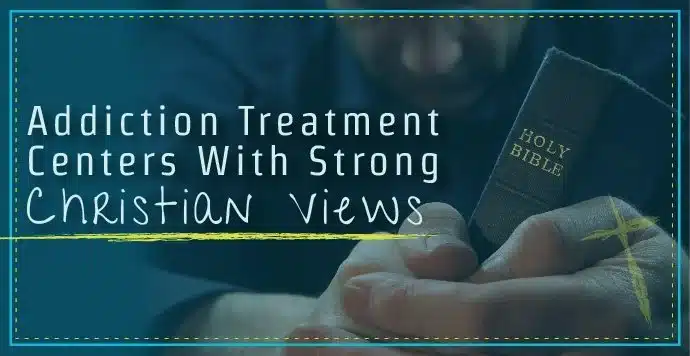
At Addiction Helpline America, we are dedicated to connecting people like you with life-changing resources. We know choosing a rehab is a monumental decision, and we offer free, confidential, and personalized guidance to help you steer your options. There’s no judgment, just genuine support from people who understand.
The hardest part is taking the first step. Reaching out for help takes courage, but you don’t have to do it alone. Whether for yourself or a loved one, we’re here to answer your questions and help you find a program that aligns with your clinical needs and spiritual values.
Your story doesn’t end with addiction. A brighter, spiritually enriched future is waiting. It starts with one conversation and one decision to choose hope.
Find the right drug rehab in California for you.
Our helpline is 100%
free & confidential
If you or someone you care about is struggling with drug or alcohol addiction, we can help you explore your recovery options. Don’t face this challenge alone—seek support from us.
Programs
Resources
Will my insurance
cover addiction
treatment?
We're ready to help
Find the best
drug or alcohol treatment
center
Are you or a loved one struggling with addiction? Call today to speak to a treatment expert.















